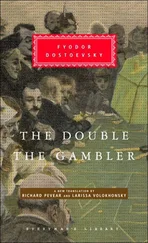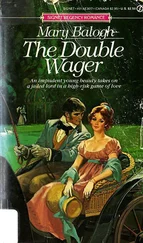“No, not lonely,” Laurel said, sitting across from her. Talia started to hand her a bagel, but Laurel was too fast and grabbed one herself. Sometimes, Talia knew, she treated her roommate like an invalid. She tried to do too much for her. “Still, I’ll be very interested to see who else will be there,” Laurel went on. “I might learn something. Maybe there will be someone who can help me make some sense of the photos we found.”
Her friend picked up the local section of the newspaper and glanced at the headlines. After a moment, Talia brought up the subject that was most on her mind that morning: “So, are you doing anything a week from Saturday?”
“That’s pretty far away,” Laurel said. “Probably the usual, I guess. Take some pictures. Maybe swim. See David.”
“Want to play paintball with me and the youth group?”
“What?”
“Paintball. You know, get in touch with your inner child?”
“My inner child is not a Green Beret. Why in the name of God-”
“Careful.”
“Why in the world would you take your church youth group out to play paintball? What possible theological lessons are there to be learned from running around the woods shooting one another?”
“Absolutely none. But it’s early in the school year and I want the group to start bonding and working like a team. I want them to get to know each other. And-and this is no small and- it’s always good to show the kids there are adults out there who care enough about them to give up a Saturday to play paintball with them.”
“Couldn’t we just go for a hike? You know, woods. Squirrels. No guns.”
“Oh, come on, they aren’t real guns. And this is something that will build a little camaraderie and juice up the boys. The truth is, I need an activity right now that will get the kids’ engines’ running.”
“Can I think about it?”
“Nope. I need another chaperone and I know the group adores you.”
“Is this your way of trying to get me to go to church more often?”
“If it gets you there the next morning, fabulous. But no, that’s not my agenda. I just don’t think you get out enough.”
“I get out plenty. You’re the one who’s boyfriend-less at the moment.”
Talia ignored this, but only because it was true. “You might get out,” she said simply, “but not with a Piranha-brand automatic paintball rifle and a couple hundred marble-sized pellets of paint. Now that’s getting out.”
Talia knew that Laurel found it hard to say no to her. The reality was that most people found it hard to say no to her. She took pride in her powers of persuasion. In the past, Laurel had joined her when the youth group had built giant slingshots to hurl water balloons at each other across the UVM rugby pitch, accompanied the group to an alarmingly creepy community theater production of Jesus Christ Superstar (Judas was hanged from the ceiling over orchestra row M), and been among the chaperones when they built a raft for a regatta across Lake Champlain to raise money for the local food shelf. The catch was that all the boats had to be homemade and the materials weren’t allowed to cost more than $150. Their boat cost nowhere near that much. It was built largely of plywood and old oil drums (though they did paint them an attractive robin’s-egg blue), and it moved gracefully through the water for easily a minute and a half before starting to list, then sink. Still, the teens’ sponsors came through with their pledges.
“I should warn you,” Talia continued, “there is a downside to paintball-and it’s a big one.”
“The fact it’s a tad violent? A wee bit antisocial?”
“Oh, don’t get all PC on me.”
“Then what?”
“We’ll have to wear these goggles that are big and gangly. I mean really big. And really gangly. They’re a very bad fashion statement.”
“We will, huh?”
She nodded. She noticed that Laurel had used the word we. Laurel hadn’t said yes yet, but it was clear to them both she was going.
A LTOGETHER, THERE WERE ten mourners at Bobbie’s funeral at the soldiers’ cemetery in Winooski, and that included a minister Laurel met for the first time; Serena Sargent, whom she had called with the news of Bobbie’s death; a woman who served lunch at the Salvation Army; and a representative from the VFW who wanted to present someone-anyone-with a beautifully folded American flag. But there were also three tenants from the Hotel New England who had known Bobbie the last year of his life, all of whom Laurel guessed were in their forties and fifties. And joining her from BEDS were Katherine Maguire and Sam Russo, the night manager who had been on duty when Serena had first brought Bobbie in. It was drizzling, but it was a warm autumn rain and they were not uncomfortable as they stood beneath the black umbrellas the funeral home had provided and listened to the minister read Psalms for this man he’d never met. Then Katherine shoveled some moist dirt onto the modest casket in the hole and they were done.
Laurel was glad she had come for many reasons, the most important of which was her desire to say good-bye to this often confused but occasionally charismatic old man. When she had been having breakfast with Talia, she realized that Bobbie had become a mascot of sorts for many of the caseworkers at BEDS: not a poster child-though that was, clearly, something Katherine thought he might become posthumously-but a laudably indefatigable and eccentric spirit. A survivor. He actually liked hanging around the day station. On his good days, he was capable of coaxing smiles from the shell-shocked who stumbled in, once and for all out of options.
She was touched to witness the friendships Bobbie had made with these other once-homeless men in the short time he had lived at the Hotel New England (but not surprised), and she was glad to see Serena-and to see that Serena was surviving, if not necessarily thriving. Serena remarked that she wanted out from under her aunt’s roof and wanted to do more with her life than to be a waitress. But, still, she looked considerably healthier than the last time Laurel had seen her, and so Laurel told her that she wanted to learn all that she could about Bobbie. Serena agreed to meet her the following week.
On their way back to the BEDS van they had used to bring everyone from downtown Burlington out to Winooski-everyone, that is, except for Serena and the dignified Korean War veteran who had appeared out of nowhere with that flag- Laurel tromped through the wet grass beside Sam. Sam was only a few years older than she was, perhaps twenty-eight or twenty-nine. He was a former Phish-head with an unruly mop of red hair that he kept back in a ponytail and an unfashionably rotund spare tire on a man so young. But he viewed himself as ample, not fat, and he was capable of quickly making the homeless who arrived at the shelter feel secure-which, for most of the social workers, was no easy task.
“I’m just curious,” she began. “What do you think: Do you believe Bobbie took all those pictures?”
“No question. They were all he had with him when he was brought into the shelter. The guy didn’t even have any underwear except the drawers he was wearing-but he had those photos.”
“But how do you know he was the photographer?”
“He just knew so much. He could talk about Muddy Waters-”
“Muddy Waters?”
“Blues singer from the 1940s and ’50s-when rock and roll really began. I gather there’s a photo of him and his band in that box. Bobbie told me stories about taking his picture at one of the old Chess Records recording sessions. And another time he told me this incredible tale where he was dangled by some crane over a football field to take a shot of, like, two hundred cheerleaders wiggling around inside Hula-Hoops. It was for Time magazine, or something. No, that’s not right: It was for Life. He did a ton of stuff for Life.”
Читать дальше












